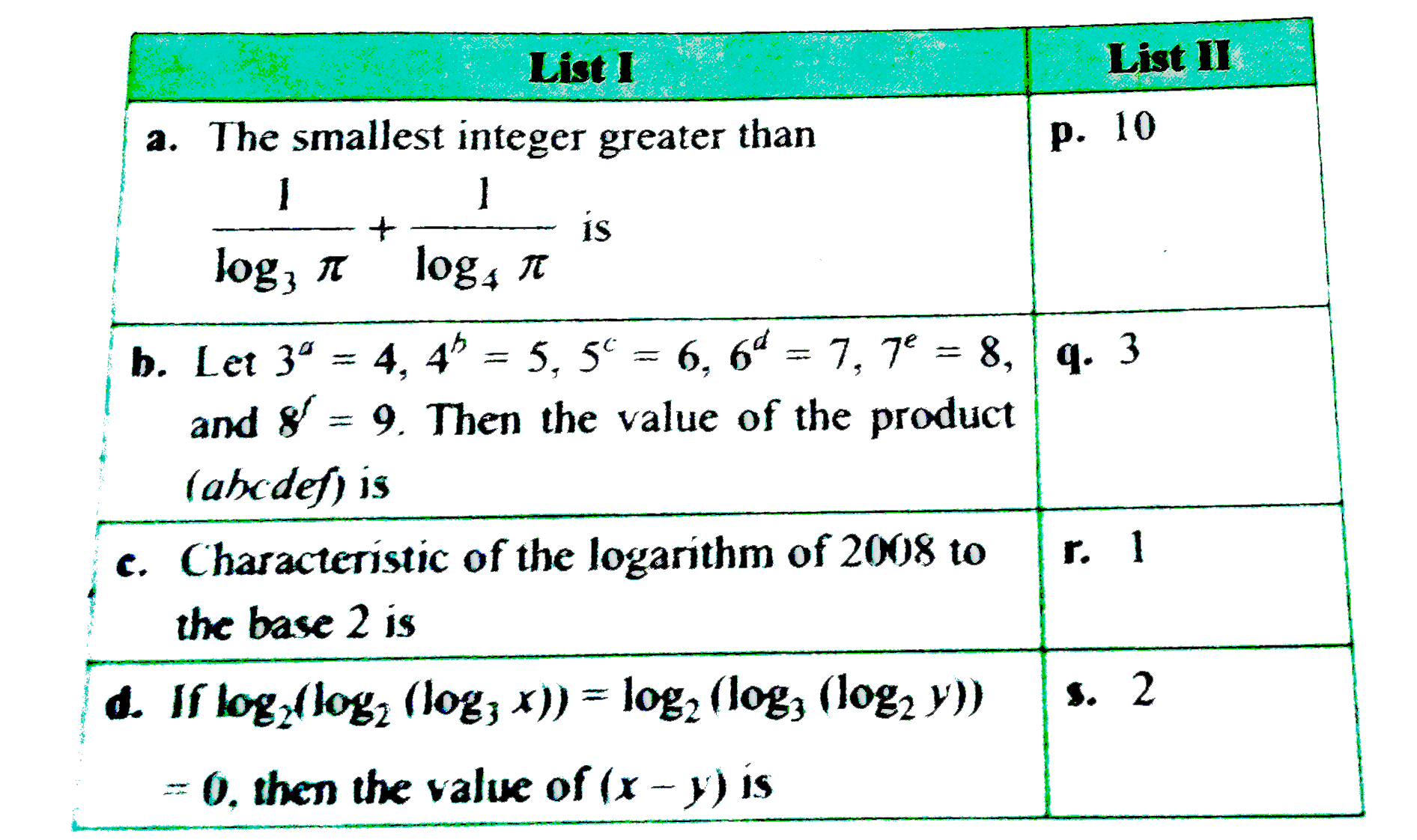If (log)kx.log5k=(log)x5,k≠1,k>0, then x is equal to k (b) 1/5 (c) 5 (d) none of theseSolution in Tamil
k
1/5
5
none of these
The correct Answer is:B, C
logkx⋅log5k=logx5
orlogxlogklogklog5=logx5
orlogxlog5=logx5
orlog5x=1log5x
or(log5x)2=1
orlog5x=±1
⇒x=5±1
⇒x=15,5
Topper's Solved these Questions
- BOOK - CENGAGECHAPTER - LOGARITHM AND ITS PROPERTIESEXERCISE - Exercise (Comprehension)6videos
LOGARITHM AND ITS PROPERTIES
- BOOK - CENGAGECHAPTER - LOGARITHM AND ITS PROPERTIESEXERCISE - Exercise (Matrix)3videos
LOGARITHM AND ITS PROPERTIES
- BOOK - CENGAGECHAPTER - LOGARITHM AND ITS PROPERTIESEXERCISE - Exercise (Single)50videos
LOGARITHM AND ITS PROPERTIES
- BOOK - CENGAGECHAPTER - LOGARITHM AND ITS APPLICATIONS EXERCISE - Subjective Type9videos
LOGARITHM AND ITS APPLICATIONS
- BOOK - CENGAGECHAPTER - MATHMETICAL REASONINGEXERCISE - JEE Previous Year10videos
MATHMETICAL REASONING
Similar Questions
Find the value of x satisfying the equations log3(log2x)+log1/3(log1/2y)=1 and xy2=9
04:37View Solution 02:33View Solution
02:33View Solutionlog418 is
00:50View SolutionFind the value of x satisfying the equations log3(log2x)+log1/3(log1/2y)=1 and xy2=9
01:58View SolutionStatement-1: ~(p↔~q) is equivalent to (p↔q).
Statement-2: ~(p↔~q) is a tautology.02:35View SolutionIntegrate w.r.t x,x log x(A)(1)/(4)x^(2)log((x^(2))/(e))+k(B)(1)/(2)x^(2)log((x^(2))/(e))+k (C) (1)/(4)x^(2)log((x)/(e))+k(D) NONE
01:51View SolutionIf the function f(x) defined by f(x)={log(1+3x)−log(1−2x)x , x≠0 k , x=0 is continuous at x=0 , then k= (a) 1 (b) 5 (c) -1 (d) none of these
02:15View SolutionIf p=s(1+k)n, then n equals a.logsp(1+k) b. log(s/p)log(1+k) c.logslogp(1+k) d. logp(1+k)log(s/p)
03:01View SolutionIf f(x)={log(1+2ax)−log(1−bx)x,x≠0 k,x=0 is continuous at x = 0, then k is equal to
03:35View SolutionIf log(5+√26)=Sinh−1 k then x =
02:49View Solutionlog 625 = k log 5 అయిన k=
01:43View SolutionIf (log)kx.log5k=(log)x5,k≠1,k>0, then x is equal to k (b) 1/5 (c) 5 (d) none of these
02:32View SolutionIf (log)kx.log5k=(log)x5,k≠1,k>0, then x is equal to k (b) 1/5 (c) 5 (d) none of these
02:44View Solutionयदि f(x)={log(1+2ax)−log(1−bx)xx≠0kx=0 , x=0 पर संतत है, तो k बराबर है-
04:02View Solutionयदि logkx.log5k=logx5,k≠1,k>0 तो x का मान है
02:02View SolutionIf f(x) = {{:((log(1+2ax)-log(1-bx))/(x)",",x ne 0),(" "k",",x = 0):} is continuous at x = 0, then k is equal to
02:49View Solution

